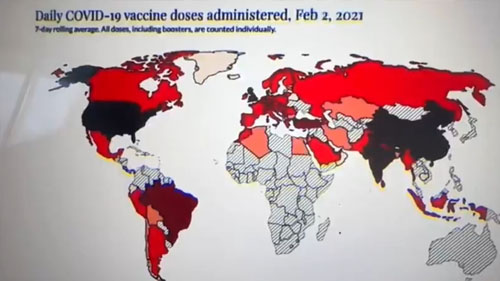| Recent Featured Videos and Articles | Eastern “Orthodoxy” Refuted | How To Avoid Sin | The Antichrist Identified! | What Fake Christians Get Wrong About Ephesians | Why So Many Can't Believe | “Magicians” Prove A Spiritual World Exists | Amazing Evidence For God | News Links |
| Vatican II “Catholic” Church Exposed | Steps To Convert | Outside The Church There Is No Salvation | E-Exchanges | The Holy Rosary | Padre Pio | Traditional Catholic Issues And Groups | Help Save Souls: Donate |  |









 " />
" /> " />
" /> " />
" /> " />
" /> " />
" />




How The U.S. Could Lose A War With China
If a war broke out between the United States and China, the clash between two of the world’s most powerful militaries would be horrific. And the United States could very well lose.
That’s a concern among current and former defense officials and military analysts, one of whom told Breaking Defense earlier this year that in war games simulating great-power conflict in which the United States fights Russia and China, the United States “gets its ass handed to it.”
Speaking at the Aspen Security Forum last week, Admiral Philip Davidson, who oversees U.S. military forces in Asia, called China “the greatest long-term strategic threat to the United States and the rules-based international order.” He described China’s rapid military buildup in nearly every domain—air, sea, land, space, and cyber—and said that while China’s capabilities don’t outnumber America’s in the region for now, it’s possible they could overtake the United States’ within the next five years.
But the sheer number of ships, missiles, planes, and people doesn’t tell the whole story. What already gives the Chinese the advantage is geography.
The Obama administration’s ill-fated Asia pivot did not prevent the growth of China’s military and economic power in the region, as it built artificial islands, embedded itself in key infrastructure projects, and invested in its military. Meanwhile, President Donald Trump has called into question whether the United States would defend its treaty allies in the Pacific, such as Japan, with complaints about the expense...
The question is what could actually cause the United States to fight China. What if China invades and occupies Taiwan, a democratic U.S. partner and arms customer? Would America actually risk World War III? What if China forces its claim to the Senkaku Islands, which the United States considers to belong to Japan? Does that fall within America’s treaty commitments to defend its ally?
There’s no guarantee that a U.S. president, especially Trump, would resort to war in either case. But these are among the scenarios war-gamers at the Rand Corporation have studied to see if the United States could prevent China from claiming territory by force. It’s not clear that the U.S. could.
Notably, the likeliest U.S.-China war scenarios take place in Asia... the U.S. can’t successfully eject China from Japanese-claimed territory or Taiwan. In an attempt to do so, besides cyberattacks, the United States could attack Chinese forces from the air or sea. The problem is that China has spent at least the past 20 years, partly informed by observations of how the U.S. conducted the Gulf War in the 1990s, preparing for exactly this kind of conflict, and investing in defenses that could violently thwart a U.S. approach.
It has missiles that can sink ships. It has missiles that can down airplanes. And it has missiles that could theoretically reach U.S. regional bases in Japan and Guam, leaving planes and runways vulnerable to attack. “Many Chinese observers suggest that missile strikes on air bases would be part of the opening salvos of a war,” notes Rand’s “U.S.-China Military Scorecard.” Shutting down such a base even for a matter of days, according to Rand, could be enough to change the course of the conflict...
“The Chinese don’t have to comprehensively defeat the United States militarily in order to achieve their near-term objectives,” David Ochmanek, a senior international and defense researcher at Rand, told me. “If their objective is to overrun Taiwan, that in principle can be accomplished in a finite time period, measured in days to weeks.”
Ochmanek participated in the Rand war games that showed the U.S. losing. “It’s not just that they’ll be attacking air bases in the region. They’ll be attacking aircraft carriers at sea,” Ochmanek said. “They’ll be attacking our sensors in space. They’ll be attacking our communications links that largely run through space. They’ll be corrupting the databases in our command systems. They’re going to try to suppress us in every dimension that they can.”...
The United States has stepped up its pace of sending Navy ships through the strait, as well as its freedom of navigation exercises in the South China Sea. France and Britain have also conducted such exercises. And the United States is competing with or confronting China outside of the military realm as well, slapping high tariffs on Chinese imports in pursuit of a trade deal and banning the Chinese telecommunications firm Huawei from doing business in the U.S. Washington has, however, been less aggressive in pushing China on human-rights and democracy issues, including China’s mass detention of Uighur Muslims and its support of a crackdown on protesters in Hong Kong.
The United States knows a lot about China’s capabilities, but discerning its intent is another question. John McLaughlin, a former acting director of the CIA who now teaches at Johns Hopkins University, notes that Chinese officials have said they aim to be a global power, but what that really means is not clear. Are they trying to build a defensive buffer zone around their borders? A lot of countries do that. Or is their intent something more sinister?
Sign up for our free e-mail list to see future vaticancatholic.com videos and articles.
Recent Content
^